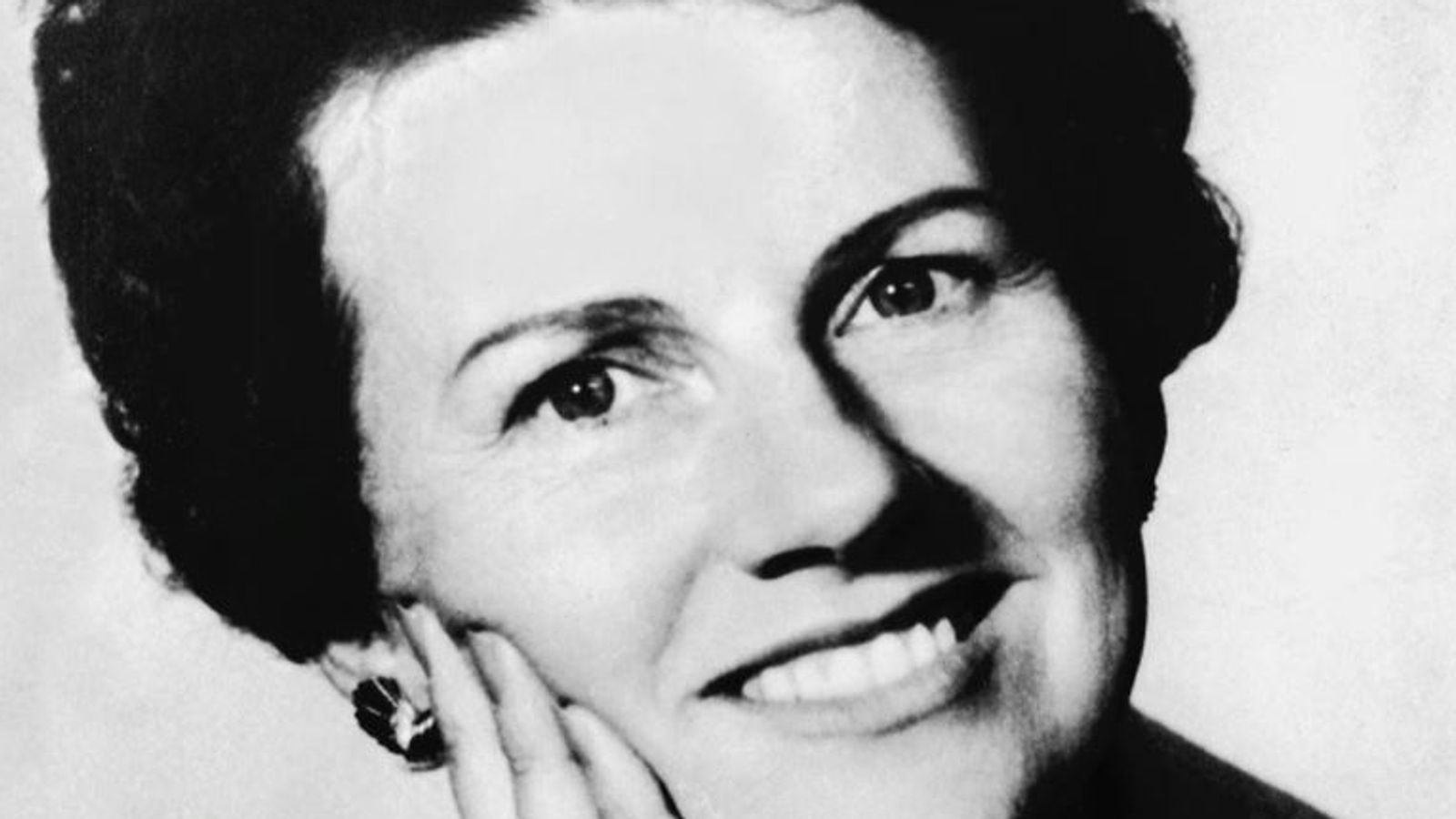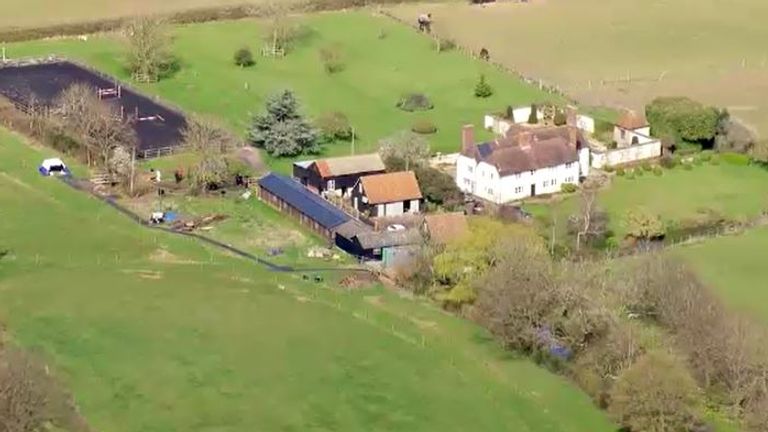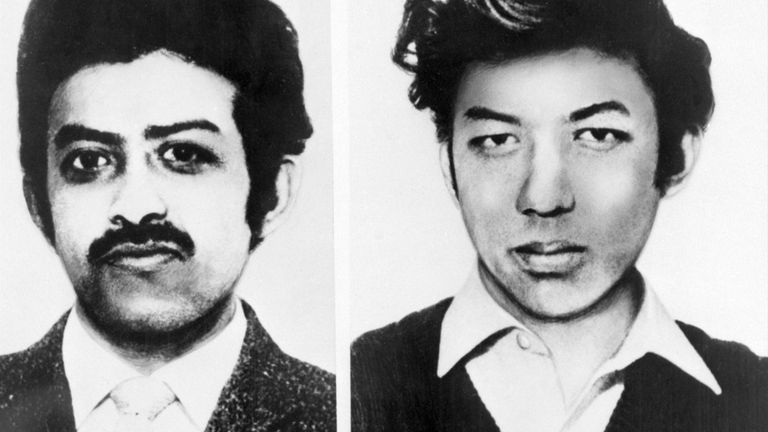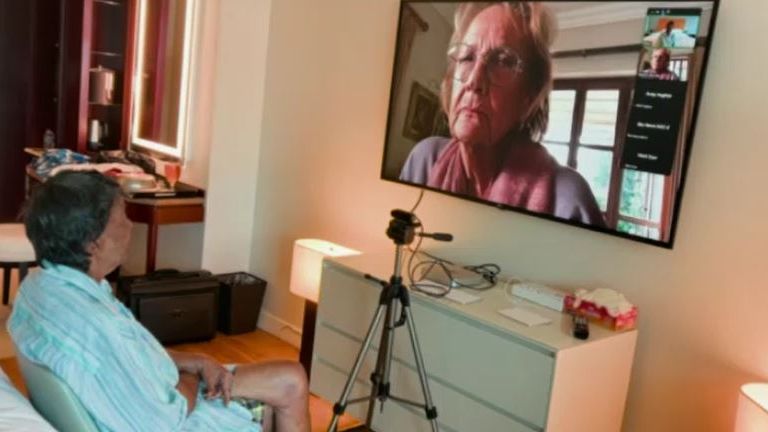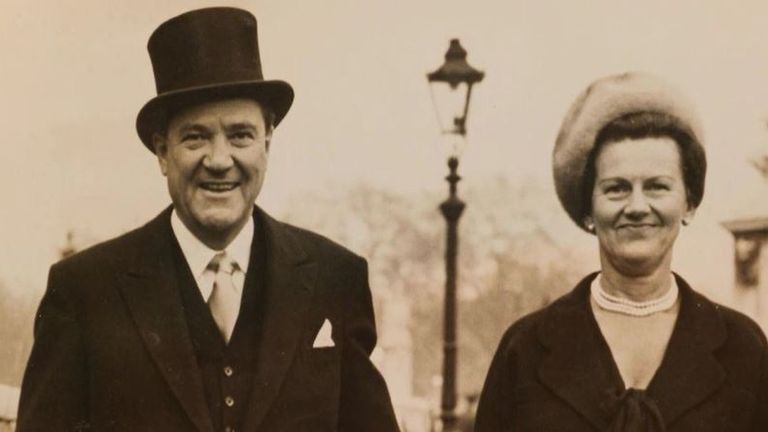A deported killer is offering to return to Britain to show his victim’s daughter where he buried her mother’s body 54 years ago.
Nizamodeen Hosein was 22 when he and his older brother Arthur kidnapped Muriel McKay, the wife of a newspaper executive, and held her ransom for £1 million.
The brothers were caught and jailed for life for murder, but Muriel, 55, vanished and her body was never found.
The kidnappers had mistaken Muriel for Anna Murdoch, the then wife of wealthy Australian newspaper magnate Rupert. Muriel’s husband Alick, also Australian, was Murdoch’s deputy.
Now free and living in his native Trinidad, Hosein has formed an extraordinary bond with Muriel’s family in a final attempt to uncover her remains.
He has written to the Home Office asking it to lift a deportation order which still bars him from the UK. His brother Arthur died in prison in 2009.
He wrote: “I admit my involvement in the kidnap and death of Muriel McKay, and I have been attempting to assist her daughter Dianne in locating her body.
“I believe I am the only living person who knows where Muriel’s body is and would like her body to be found before I myself die.”
After years of refusing to explain Muriel’s fate, Hosein now claims Muriel collapsed and died of a heart attack at the remote, rented Hertfordshire farm where the brothers were holding her.
Hosein, 75, says he panicked and buried her body under a dung heap behind the farmhouse near the village of Stocking Pelham.
Scotland Yard detectives searched a small section of a field near the house last year, without success, but the family insist they dug in the wrong place.
Hosein says he is certain he will remember exactly where he buried Muriel’s body, even though the buildings, the farmyard and the fields have changed a lot since the kidnap in 1969.
To help him, the McKay family have commissioned computer-generated images to show precisely the changes in the layout of the farm.
I watched as Hosein and Dianne exchanged warm greetings during a recent video call between their homes 4,300 miles apart.
“Hello Nizam, it’s Dianne, how are you?” said Dianne.
“Hello Dianne, all the better for seeing you,” was Nizam’s reply.
Dianne: “It’s very hard for me to talk about this because it’s quite painful, but if you can come and help us find my mother, we’d be grateful.”
Nizam: “I’m quite willing … I’m quite prepared.”
Dianne: “You’re quite prepared to come over and explain and show us exactly where you put her?”
Nizam: “Yeah.”
After their conversation, Dianne told me: “He’s a man of few words.”
I asked her what it was like having to speak to – and rely on his help – the man convicted of her mother’s murder?
She said: “It’s been very hard having so many years of nobody to talk to, no leads and no hope of ever finding her body. It’s actually a relief to talk to him.”
Dianne, 82, believes this is probably the family’s last chance to find her mother’s final resting place, but there are still hurdles to overcome.
The Home Office said in a statement: “We express sympathies with Muriel McKay’s loved ones.
“Whilst we do not comment on individual cases, we work with the police on any requests pertaining to ongoing investigations.”
Scotland Yard is in contact with the McKay family and has spoken to Hosein.
Detectives are considering the possibility of applying for a search warrant to excavate at the farm again, but are not yet convinced it is worth it.

William Turner is a seasoned U.K. correspondent with a deep understanding of domestic affairs. With a passion for British politics and culture, he provides insightful analysis and comprehensive coverage of events within the United Kingdom.

